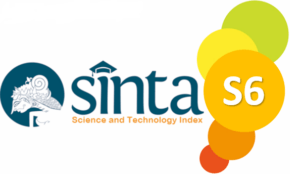| ..:: MAIN MENU ::.. |
| About The Journal |
| Focus & Scope |
| Peer Review Process |
| Author Guidelines |
| Publishing System |
| Privacy Statement |
| Copyright & License |
| Author Fees |
| Contact Us |
About the Journal
About the Journal
Focus and Scope
Focus
-
Algorithms and Data Structures: Development, analysis, and optimization of algorithms and data structures. This includes studies on complexity, efficiency, and new algorithmic techniques.
-
Computer Systems and Architecture: Research on computer hardware and systems architecture, including processors, memory systems, and computer organization.
-
Software Engineering: Exploration of software development methodologies, tools, and practices. This includes software design, testing, maintenance, and project management.
-
Artificial Intelligence and Machine Learning: Studies on AI techniques, machine learning models, deep learning, natural language processing, and their applications in various domains.
-
Cybersecurity and Privacy: Research on protecting computer systems and networks from security threats, privacy concerns, encryption techniques, and cybersecurity policies.
-
Human-Computer Interaction (HCI): Examination of how users interact with computer systems, including user interface design, usability, and user experience.
-
Networking and Communications: Research on network protocols, data communication, wireless networks, and network security.
-
Distributed Systems and Cloud Computing: Studies on distributed computing models, cloud infrastructure, and services, including scalability, reliability, and resource management.
-
Database Systems: Exploration of database design, management, and optimization. This includes relational databases, NoSQL databases, and data warehousing.
-
Computational Science and Engineering: Application of computational techniques to solve scientific and engineering problems, including simulations, modeling, and data analysis.
-
Theoretical Computer Science: Research on computational theory, formal languages, automata theory, and complexity theory.
-
Emerging Technologies: Exploration of new and emerging technologies in computing, including quantum computing, blockchain, and the Internet of Things (IoT).
Scope
-
Original Research: Peer-reviewed articles presenting new findings, innovations, and advancements across various subfields of computer science.
-
Theoretical Contributions: Articles contributing to the theoretical foundations of computer science, including proofs, models, and conceptual advancements.
-
Applied Research: Research focusing on practical applications of computer science concepts, including case studies, real-world implementations, and applied methodologies.
-
System and Tool Development: Studies on the development of new software tools, systems, and frameworks, including their design, implementation, and evaluation.
-
Experimental Studies: Research involving empirical studies, experiments, and evaluations of computational techniques, systems, or methodologies.
-
Survey and Review Articles: Comprehensive reviews and surveys of current research trends, methodologies, and advancements in specific areas of computer science.
-
Educational Resources: Articles focused on teaching and learning in computer science, including curriculum development, pedagogical approaches, and educational tools.
-
Industry Applications: Research on the application of computer science theories and techniques in industry settings, including case studies and industry trends.
-
Security and Privacy: Articles on new developments in computer security and privacy, including cryptographic methods, threat analysis, and protective measures.
-
Interdisciplinary Research: Research that bridges computer science with other disciplines, including bioinformatics, computational finance, and digital humanities.
-
Book Reviews and Critical Essays: Reviews of recent books and significant publications in computer science, providing critical assessments and insights.
-
Special Issues and Symposia: Themed issues or symposia on specific emerging topics or pressing challenges in computer science, featuring contributions from multiple researchers.
Peer Review Process
The authors of the article have to pay attention to the following editorial policy provisions:
- The manuscript that has been published or in the process of publication on another publisher may not be submitted. The author should confirm that the manuscript has not been published or in the process of being published by other publishers (in sealed).
- Manuscript submitted in digital form to the Editorial Board of Jurnal Ilmu Komputer Revolusioner (JIKR) using the online submission provided on this website.
- Upon acceptance of the Editorial Board, the manuscript will be explored in general. Scripts which are considered incompatible with the mission of Jurnal Ilmu Komputer Revolusioner will be rejected at this stage, and will be communicated immediately to the author and the reason of disapproval.
- Manuscripts that pass the general study will be sent to at least two reviewers (blind reviewer) to be formally studied.
- Based on reviewers' comments and recommendations, the Editorial Board will make and communicate decisions regarding assessed manuscripts (accepted without revision, accepted with minor revisions, major revisions accepted, rejected due to the quality of writing and rejected because of ethical reasons writing scientific papers).
- Revised manuscript must be returned to the Editorial Board within a predetermined time. If the revised manuscript is sent past the deadline specified, it will be treated as new submissions.
Publication Frequency
JIKR published 12 times a year.
Open Access Policy
This journal provides immediate open access to its content on the principle that making research freely available to the public supports a greater global exchange of knowledge.
Publication Ethics Statement
JIKR managed by jurnalhst.com. Editing in the publishing process of JIKR involves the role of Peer Reviewers.
JIKR has a high commitment in maintaining the highest standard in publication, including by upholding compliance to publication ethics. For this purpose, the Publication Ethics of this journal refers to the Regulation of the Head of Indonesian Institute of Sciences No. 5 of 2014 on the Code of Ethics of Scientific Publications. The Publication Ethics, which is intended to respond to cases of ethical misconduct in publications, is developed in four ethical standards, based on the parties participating in the production of a journal, which are Ethical Standard for Journal Manager, Ethical Standard for Editorial Board, Ethical Standard Peer Reviewers and Ethical Standard for Authors.
When it comes to implementation, articles that show lacks of compliance to the Publication Ethics will be denied publication in JIKR. To prevent violations of the Publication Ethics, the Editorial Board applies software to detect plagiarism practices. In any case where violations of the Publication Ethics of a published article is detected subsequently, the Editorial Board will file a report to the appropriate authorities.




